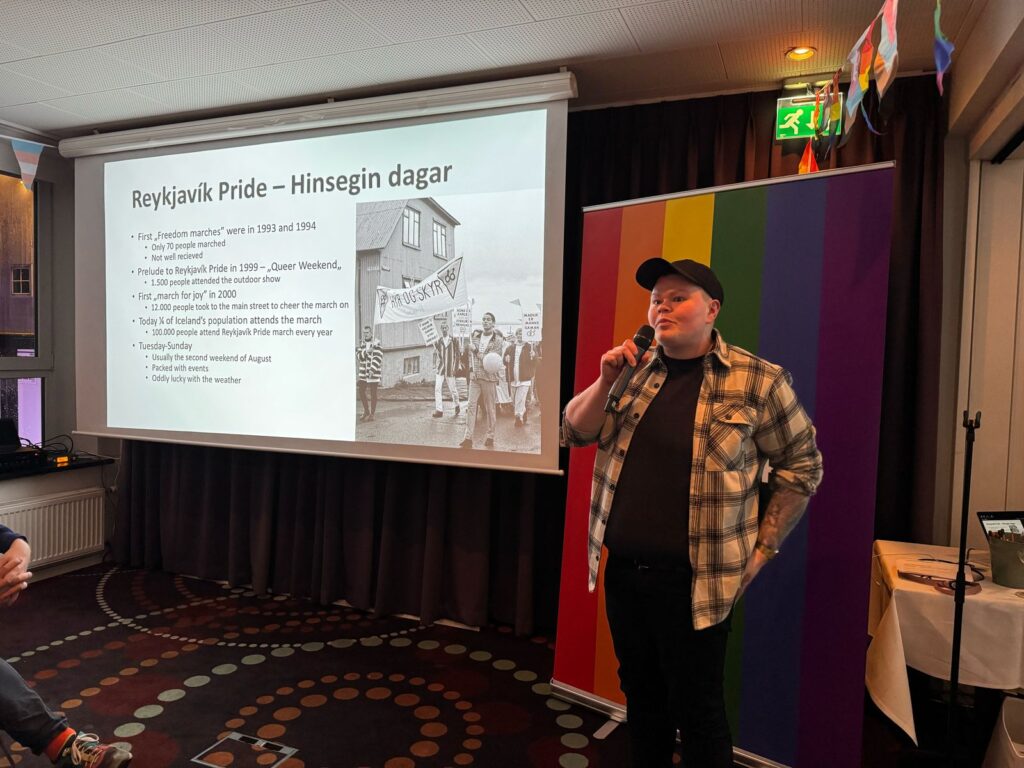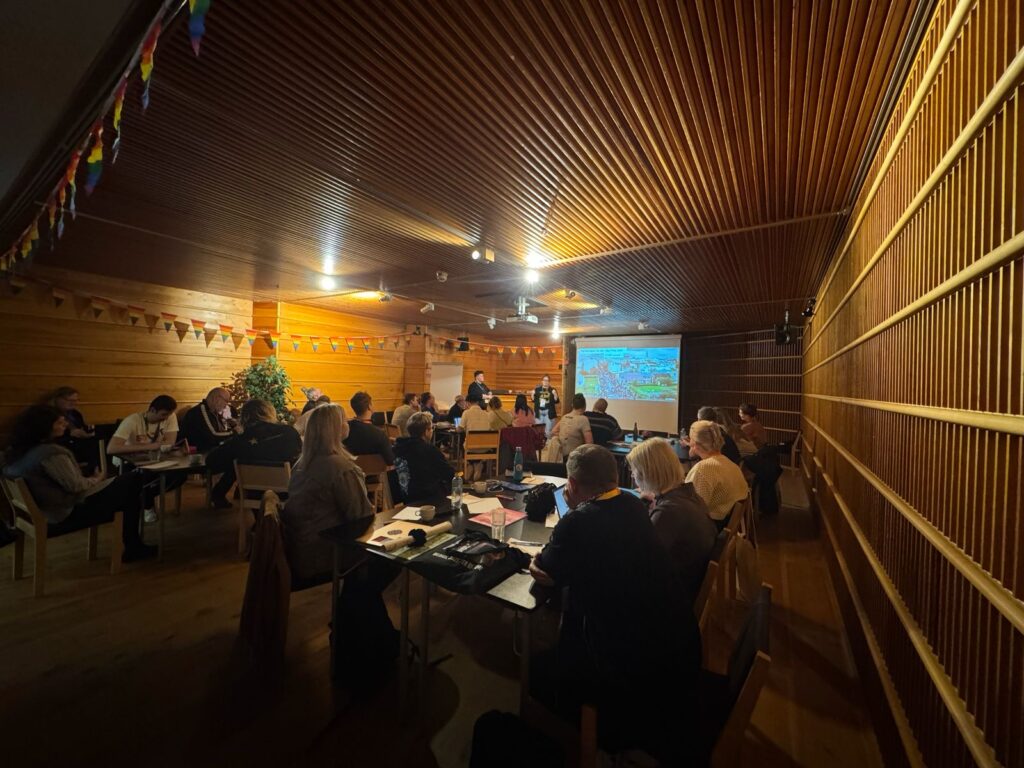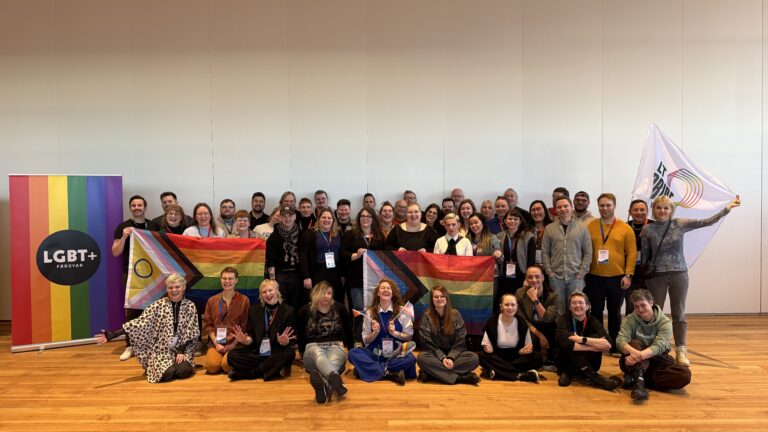LGBT+ Føroyar is both the organiser of the local Pride and the only organisation in the Faroe Islands dedicated to promoting the rights of sexual and gender minorities. According to the organisation’s coordinator, Esther Margreth Petersen, there are still significant aps in the realisation of the rights of rainbow minorities in the Faroe Islands. The conference theme and programme reflected the needs of both local activists and minority communities, as well as the wider Nordic community.
Support from the Nordic community for local advocacy
In February 2025, around 50 participants arrived in Tórshavn – all Nordic countries except Åland were represented. The Mayor of Tórshavn and the Faroese Minister for Equality also attended.
“One of our main goals is to see the gender recognition act implemented,” says Petersen. “It’s a divisive issue, and change will take years. Networking helps us develop year-round advocacy and make better strategic use of the Pride event.”
Key partners for LGBT+ Føroyar included the Pride organisers of Copenhagen, Oslo, and Reykjavík, and many others contributed to the delivery of workshops.
“For us, hosting the conference was an opportunity to highlight the perspective of smaller Pride organisers. Tórshavn is both the capital and a small-scale actor, which makes our position unique,” Petersen explains.

Demos funding enabled broader participation
According to Petersen, support from the Nordic Council of Ministers’ Demos programme was essential in bringing the event to life. It allowed the organisers to secure a suitable venue and offer scholarships to smaller Pride groups to cover their travel expenses.
“The event was free of charge for participants. Thanks to the scholarships, we were able to welcome representatives from many smaller Prides, such as Greenland and Sápmi Pride,” Petersen says with satisfaction.
The programme ran from Friday to Sunday and was built around input from participants. There was a strong desire to bring attention to issues that had previously received less focus. Feedback from the event was overwhelmingly positive.
Nordic solidarity as a source of strength
For LGBT+ Føroyar, addressing the rise of anti-gender movements and political polarisation has been challenging. Nordic cooperation offers valuable perspectives and support in strengthening their work.
“Many challenges are shared across countries and are very practical – things like programme design, inclusivity, accessibility, and safety. It was important for us to also receive support for our advocacy efforts,” Petersen notes.
She says the event reinforced the understanding that the strength of the Pride movement lies in community and collaboration:
“Because most of this work is volunteer-based, energy easily focuses on internal matters. We have learnt how important it is to share knowledge and support one another. We are part of a larger movement with a shared goal.”


